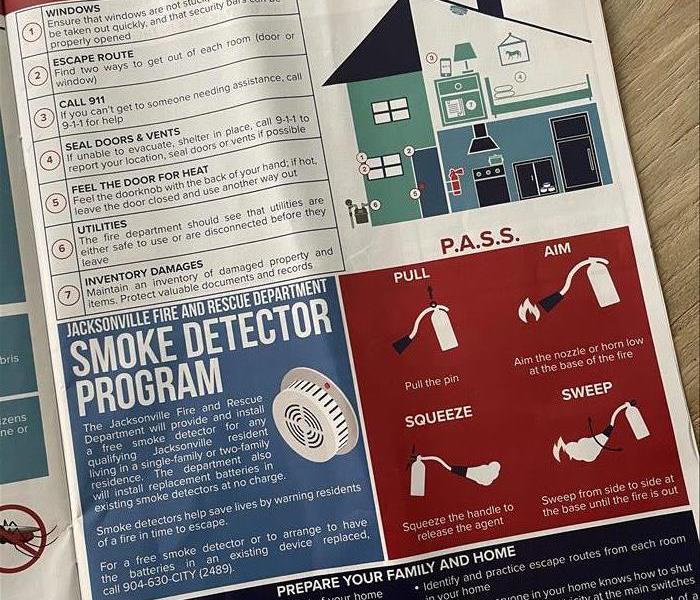Smoke Alarm Facts
9/26/2023 (Permalink)
Explore essential smoke alarm facts to ensure their life-saving potential. Proper installation, maintenance, and troubleshooting are key for this vital fire safety device.
The Importance of Smoke Detectors
Having numerous smoke alarms throughout your home or business is essential for warning occupants of fire and smoke. By waking people up and making the urgent situation apparent, people can evacuate to safety before their lives are at risk. The benefits of smoke detectors are so substantial that the National Fire Protection Association (NFPA) requires them in every residential dwelling or sleeping unit.
Where to Install Smoke Alarms
NFPA 72 outlines where you should install smoke detectors, including:
- Inside every bedroom
- Outside each sleeping area
- On every level of the home, including the basement
- High on the wall or ceiling
- At least 10 feet from cooking appliances and humid bathrooms to minimize false alarms
- Away from windows, doors, or air vents that might generate interfering drafts
Existing homes that aren’t up-to-code should be modified to meet these requirements. Keep in mind that larger homes need additional smoke alarms.
How Smoke Alarms Work
Smoke detectors come in two forms:
- Photoelectric smoke alarms feature a beam of light within the unit. When smoke particles scatter this beam, the alarm goes off. These detectors tend to be most responsive to smoldering fires.
- Ionization smoke alarms have a chamber with a small electrical current. When smoke enters the chamber, the number of ions changes, dropping the electrical current and sounding the alarm. These detectors are generally more responsive to flaming fires.
For the best protection, you should install both types of alarms in your home. Combination units are also available.
Why Smoke Detectors Go Off for No Reason
Smoke alarms may save lives, but they’re not perfect. Here are some possible reasons why your smoke detector keeps going off:
- Dust buildup in the ionization chamber
- Insect intrusion
- High humidity
- Rapid temperature changes
- High sensitivity
- Malfunctioning sensors
- Aging components
How and When to Maintain Your Smoke Detector
Smoke alarms require minimal maintenance to remain in good working order. Here’s what to do:
- Test your smoke alarm once a month by pressing the test button. A loud tone should sound. If all is well, press the button again to turn off the alarm. If the device doesn’t work, replace it immediately.
- Dust each smoke detector with the brush attachment on your vacuum cleaner every six months to keep cobwebs at bay.
- Change the smoke detector batteries once a year or when you hear your smoke detector beeping.
- Install new smoke alarms every 10 years.
If your home has been damaged in a fire, turn to SERVPRO of Mandarin for help. Our team is available 24/7 to help make your home safe and habitable once more. Call us today at (904) 636-0044 to request fire damage restoration.






 24/7 Emergency Service
24/7 Emergency Service